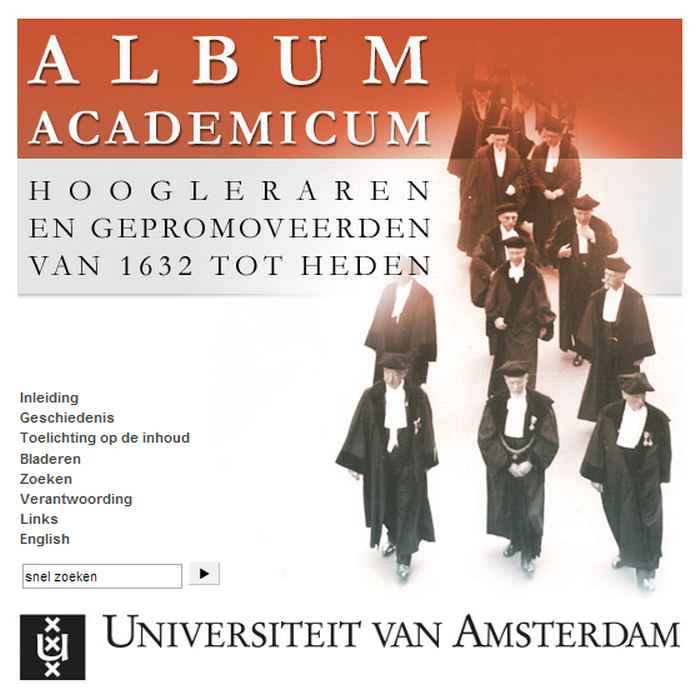Professors
In the Netherlands, the Higher Education and Research Act identifies two types of professors: full professors and professors by special appointment. The University of Amsterdam has an additional category, University Professors, reserved for leading professors within or outside of the University who have demonstrated excellence in research, teaching and social impact.
-
Recent appointments
New professorial appointments at the University of Amsterdam are guided by the University’s Professorial Appointments Policy. A basic premise is that professors have responsibility for both teaching and research and must demonstrate quality in both areas. Each year, approximately 50 professors are appointed at the University of Amsterdam.
-
University Professors
University Professors are specially appointed by the Executive Board for a period of five years. The appointment is reserved for leading professors from within the University or outside it who have demonstrated excellence in research, teaching and social impact. Besides their faculty-specific assignment, University Professors have a University-wide remit which they can shape as they see fit.
University Professors are expected to be a source of renewal at the University and an inspiration to students, researchers and lecturers. They are tasked with fostering interdisciplinarity and new avenues for research and teaching. They are also expected to play a role in stimulating debate within the University and increasing the University’s visibility within wider society.
-
Professors by Special Appointment
A professor by special appointment is appointed to a Special Chair. According to the law, the Special Chair must be established by a legal entity with full legal capacity (hereinafter referred to as the legal entity), often an external establishing authority. Professors by special appointment are appointed with the approval of the Executive Board by the legal entity and do not have an employment contract with the university. A guest contract is entered into between the professor by special appointment and the university. The UvA only grants approval for the establishment of special chairs when it represents a substantial enrichment of the educational and research offerings of a faculty, and the teaching assignment aligns well with the profile and strategy of the faculty.
See the overview of externally funded chairs (in Dutch), including Special Chairs.
-
Ancillary activities of professors
Ancillary activities are paid or unpaid activities independent of their employment at the UvA. Having ancillary activities is fundamentally a good thing; it means we are actively engaging with society. Openness about who carries out which ancillary activities and for which organisation or company is mandatory on the basis of the ancillary activities sector regulations. Professors register their ancillary work in the personnel system, and this data is published on their profile page on the UvA website.
In order to provide a national overview of ancillary activities of professors on the Universities of the Netherlands (UNL) website, a list of all UvA professors, including professors by special appointment, and their registered ancillary activities has been created. Download the overview dated 6 February 2024. This overview is updated at least quarterly. UvA professors working at ACTA and Amsterdam UMC are included in the lists of Vrije Universiteit and Amsterdam UMC, respectively.
Transparency of funding sources for professors by special appointment is important. In response to parliamentary questions, the Ministry of Education, Culture, and Science recently pledged that each university will publish an overview on their website indicating which external entity has financed the (special or regular) chair. Download an overview based on the situation as of 4 March 2024. This overview will be periodically updated.
The Album Academicum names every professor since 1632 who has worked at the University of Amsterdam or at its predecessor, the Athenaeum Illustre. The database provides personal details and information about the professor’s academic background and position. It provides insight into the University’s development: its growth and stagnation, the development and popularity of different subject areas and the role of women in research.
